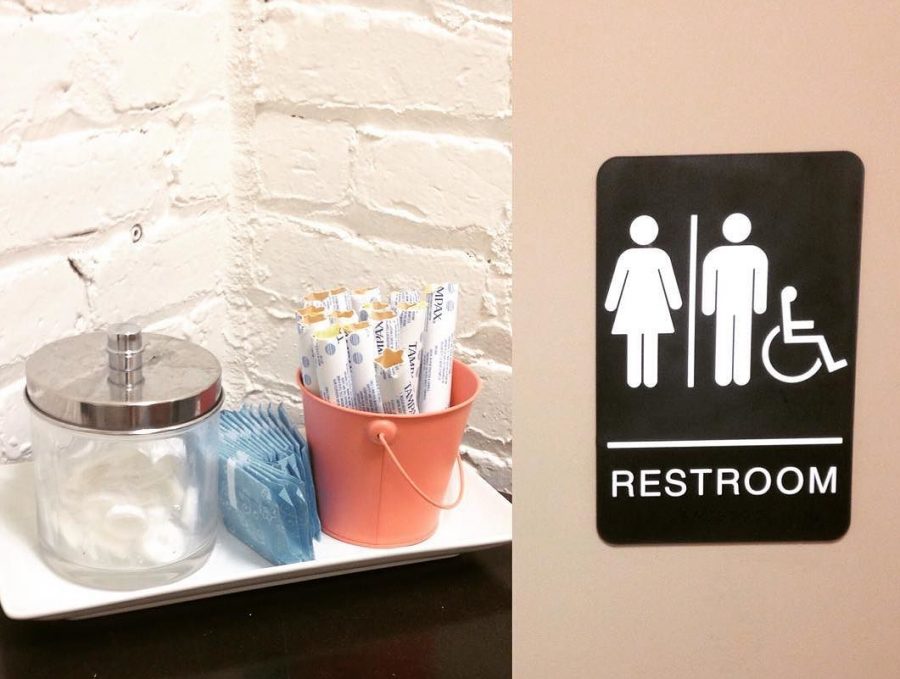Sac State’s feminine hygiene product shortfall
Lance Roggendorff / CC BY 2.0
Facilities Management Director Daryn Ockey said his department stopped providing tampons and maxi pads in the summer of 2009, placing the onus on budget challenges.
April 17, 2018
Sacramento State senior Jessica Swan is troubled by what she sees as the lack of feminine hygiene products available on campus.
In an email sent to President Robert Nelsen, the Women’s Resource Center and Associated Students, Inc., Swan voiced her concerns with a particular emphasis on how this affects students and the homeless.
“I guess it never really dawned on me until recently that homeless people get their periods,” Swan said. “They have the bare necessities, exactly what they need — but those essentials are basic.”
As previously reported by The State Hornet, 10.9 percent of CSU students reported experiencing homelessness one or more times in the last 12 months, according to a study conducted by two CSU principal investigators.
In Swan’s email, she mentioned California Assembly Bill 10. AB10, signed into law last October, was widely-supported by ASI and the University.
AB10 requires schools with students in grades 6-12, and with at least 40 percent of students under the federal poverty line, to stock period products in half of the restrooms.
According to Swan, it was found that women and girls miss days of school as a result of getting their periods, resulting in a barrier to their success.
While the passing of AB10 was celebrated, colleges and universities are not covered by the law.
“When a student is trying to get their degree and struggling with housing, the last thing we might think of is period products,” Swan said. “But choosing between a $5 box of tampons and making rent that month should not be a choice anyone in our campus community has to make.”
Aisha Engle, a program coordinator for the Women’s Resource Center, said that the center has been providing tampons and maxi pads for the campus community for a significant amount of time.
According to Engle, the Women’s Resource Center receives funding from the University that allows the center to purchase feminine hygiene products, but only if they’re available through the CSU Campus Marketplace.
The CSU Marketplace is an e-procurement supplier-based catalog that affords faculty and staff the opportunity to purchase goods to support the academic and operational needs of their department, according to Sac State’s website.
“The thing is that it’s not a sustainable thing for the Women’s Resource Center to be the only stakeholder in the campus-wide delivery of tampons and maxi pads,” Engle said. “The hope would be that this would be something that is taken on by the larger institution in regard to providing (feminine hygiene products) for 56 percent of our population of students here, if not more.”
Engle said providing these resources is imperative to the needs students.
“This is not unprecedented,” Engle said. “Other institutions are thinking, ‘Well, how can we provide this resource to all campus community members?’ It’s just a matter of getting stakeholders on board.”
According to Engle, Sac State once provided tampons and maxi pads for purchase in the women’s bathrooms. However, because of the recession and lack of funding, most of those dispensers are now empty.
Facilities Management Director Daryn Ockey said his department stopped providing tampons and maxi pads in the summer of 2009, placing the onus on budget challenges.
“Before we stopped supplying feminine hygiene products, we were spending money repairing damaged dispensers that appeared to be used infrequently,” Ockey said.
While most tampon and maxi pad dispensers remain empty, Ockey said there are no plans to resume providing feminine hygiene products at this time.
Swan remains diligent about finding a sustainable solution for Sac State.
“We can not allow our diversity, one of our most valuable resources and a point of pride for myself personally, to be negatively impacted because we did not provide a sanitary napkin to a person in need,” Swan said. “Our diversity is not just a point of pride for me personally but one of our most valuable resources as a campus community. This is why period products need to be added as a resource on our campus, so our whole campus can succeed.”

































































































































